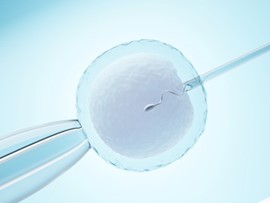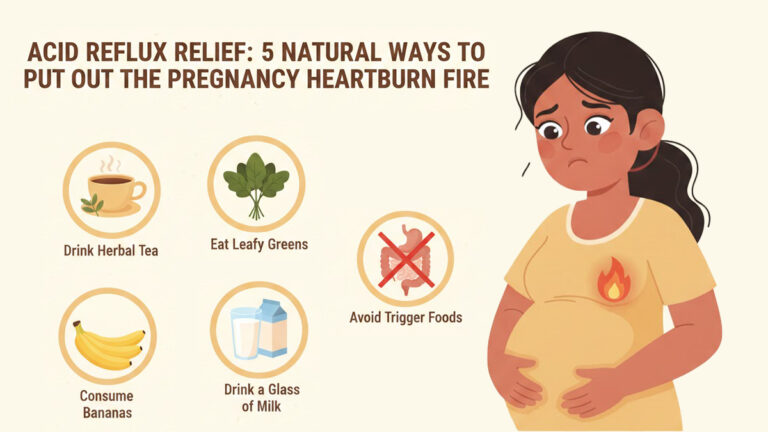IVF is a fertility treatment in which the female eggs and male sperm are fertilized or combined outside the body in a lab.
This method is used for people who have difficulty achieving pregnancy.
IVF is one of the most effective forms of assisted reproductive technology (ART), which involves a complex process.
The process involves collecting eggs from ovaries manually and combining them with sperm in a laboratory environment for fertilization. These fertilized eggs (called an embryo) are then placed inside a uterus to get pregnant.
When and Why is an IVF Performed?
(In Vitro Fertilization)
IVF is suggested for people for many reasons, which include-
- Infertility Issues
- Genetic Issues
- Any existing health condition in one partner
- Age >40 years
Some people opt for IVF if other fertility methods have failed. IVF is also an option for couples with same-sex or for people who want to have a baby without a partner.
IVF Procedure
(In Vitro Fertilization)
IVF is a complex process that involves many steps that last for about 4-6 weeks. This includes a process of collecting eggs from ovaries, combining them with sperm in a laboratory environment for fertilization, and placing these fertilized eggs inside a uterus until they are tested for pregnancy.
Is IVF a Common Procedure?
(In Vitro Fertilization)
About 5% of couples who face issues with infertility will opt for IVF.
It is one of the most effective assisted reproductive technologies (ART), and on average more than 8 million babies are born through IVF.
IVF and IUI: What is the Difference?
| IUI (Intrauterine Insemination) | IVF (In vitro Fertilization) |
| Fertilization occurs in a person’s body | Fertilization occurs in a lab |
| Less Expensive | More Expensive |
| Less Invasive | Complex process |
| Low success rate | High success rate |
| High-quality sperm are directly inserted into your uterus | Sperm and egg are fertilized in a lab and placed in your uterus as an embryo |
Process or Steps of IVF Treatment
Sept 1: Medications (Birth control pills or Estrogen)
Before treatment, the doctor may prescribe some birth control pills or estrogen to control the development of ovarian cysts and the menstrual cycle.
Step 2: Ovarian Stimulation
As a natural cycle in a healthy person, a group of eggs mature each month, but only one egg becomes mature to ovulate.
During your IVF process, an injectable hormone medication is given to help all eggs mature simultaneously and fully.
Step 3: Egg Retrieval
Your doctor uses an ultrasound with a suction device to pull your mature eggs out and place them in a controlled environment.
Step 4: Fertilization
In this step, the sperm is injected into each mature egg and made to fertilize. On average, about 70% of mature eggs will fertilize.
Step 5: Embryo Development
In the next 5-6 days, the embryo development is carefully monitored, and those suitable for transfer will be frozen.
Step 6: Embryo Transfer
There are two kinds of embryo transfers:
- Fresh embryo transfer
- Frozen embryo transfer
Both follow the same transfer process.
The embryo transfer is a simple procedure and does not require anesthesia. It feels like a pelvic exam or Pap smear. The procedure usually takes less than 10 minutes.
Step 7: Pregnancy
Pregnancy occurs when the embryo grows itself into the lining of your uterus. Approximately 9-14 days after embryo transfer, your doctor will order a blood test to determine if you are pregnant.
Many factors are to be considered before starting IVF treatment. To get a better understanding of the IVF process and what to expect, consult with your doctor.
How To Prepare for IVF Treatment?
Before starting IVF, you will need a thorough medical examination and fertility tests for you and your partner.
Other Tests
• A uterine exam
• Pap test and mammogram (if >40 years)
• A semen analysis
• Screening for sexually transmitted infections (STIs) and other infectious diseases
• Ovarian reserve testing
• Blood and urine tests
• Genetic carrier screening
• Uterine cavity evaluation (hysteroscopy or saline-infused sonography)
Your doctor will prescribe folic acid supplements for at least 3 months before embryo transfer.
What To Expect After IVF Treatment?
You may experience some mild symptoms after embryo transfer.
• Mild bloating and cramping
• Breast tenderness
• Spotting
• Constipation
People can return to their normal activities. Around 9-14 days after the embryo transfer, you will need a checkup to test for pregnancy.
IVF Benefits
- Helps people who cannot conceive
- High success rate with a safe track record
- Useful for single women and same-sex couples
- help to diagnose fertilization problems
- Decreased chances of Miscarriage
- No barriers or limitations
Disadvantages
- Multiple births (twins or triplets)
- Premature delivery
- Ectopic pregnancy (a condition where the fertilized egg grows outside the uterus)
- Ovarian hyperstimulation syndrome (OHSS): A rare condition that causes stomach pain, nausea, vomiting, diarrhea, sudden weight gain, bloating, shortness of breath, and inability to urinate.
IVF Risks
• Nausea and vomiting.
• Hot flashes
• Headaches
• Enlargement of ovaries
• Abdominal pain
• Bruising from injections
After embryo transfer, you can resume your normal activities. However, your ovaries will be enlarged, and some discomfort may occur.
How Long Do You Need to Wait After a Failed IVF procedure?
It is recommended to complete one menstrual cycle between IVF processes, i.e., an average wait of 4-6 weeks. This break is usually advised for health as well as emotional reasons.
When to Call the Doctor?
• Fever >100.5 degrees Fahrenheit
• Blood in your urine
• Heavy bleeding from your vagina
• Severe pelvic pain
Can IVF Cause Birth Defects?
It is not completely known if IVF alone is responsible for birth defects. However, some studies show a slightly higher risk of birth defects for babies born through IVF. This could be due to delayed conception or due to any underlying cause of infertility.
Safety Precautions for IVF Procedure (In Vitro Fertilization)
- Avoid Having Intercourse
- Avoid Heavy Lifting
- Avoid Heavy Exercise
- Avoid Smoking, Alcohol, and Caffeine
- Take Medications as Prescribed by Doctor
- Keep Away from Heat and Harmful Chemicals
- Eat a Well-balanced Diet








